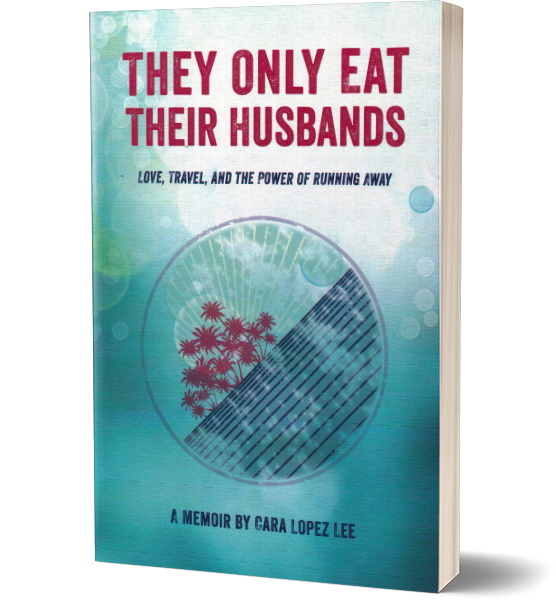April 8, 2008
Hong Kong, China
Eleven years since the handover of Hong Kong from the British to the Chinese government, and crossing the border between Mainland China and Hong Kong is still an ordeal. It took Fiona Zhu and I nearly four hours to travel from Guangzhou to Kowloon, even though they’re little more than a hundred miles apart. The delay is partly because we had to stop at a checkpoint, get off the bus with our bags, and be granted departure from China… then get back on, stop at another checkpoint, get off again, and be granted arrival in Hong Kong.
My time with each immigration official was always longer than any other passenger on our bus, because I was the only wai guo ren, or foreigner. Everyone else was either Mainland Chinese or Hong Kong Chinese, two groups that are often easy to tell apart upon close inspection: Hong Kong Chinese tend to walk with a slight swagger reminiscent of confident Westerners and to dress a bit more stylishly, while Mainland Chinese tend to waddle more and frequently sport at least one fashion faux pas – such as striped shirts atop flowered pants, mismatched socks, plastic shoes, or frizzy perms.
I had dozed through much of the bus ride, though I’d woken often enough to ascertain that I wasn’t missing much. The scenery between Guangzhou and Shenzhen (the last stop before Hong Kong) is relatively flat, and the cities and suburbs on the route are numbingly repetitive. Modern China is a series of brick and concrete boxes, some of which are compartmentalized into smaller boxes, where both rich and poor are forced to live, thanks to overpopulation pushing space to a premium. There’s not much room to move in China, except up, so even the houses of the suburbs are tall and narrow.
When we arrived in Hong Kong, the day was surprisingly sunny. So I suggested to Zhu Zhu that, in spite of the long travel day, we should take advantage of the rare clear skies and head for Victoria Peak to take in the fickle view. If the usual pollution, fog, clouds, or rain held sway the rest of the week, we might not get another chance.

The Star Ferry crossed Victoria Harbor almost too quickly for such a perfect day.
So, after four hours of bus travel, two taxi rides to our hotels, a walk to four banks to find one that would sell me Hong Kong dollars without charging a fee, a stop at a bookstore that sold books written in English (to solve the nighttime boredom that’s plagued me since I finished The Namesake more than a week ago), and a bus ride to the Star Ferry Terminal, we finally sat on a ferry bound for Hong Kong Island. The Star Ferry crossed Victoria Harbor almost too quickly for such a perfect day. The sun flashed off the water like drops of liquid gold, turning the urbane, overbuilt towers on either side into something pristine and timeless.

The sun flashed off the water like drops of liquid gold.
We stepped off the ferry and began the long walk through modern metal corridors that carried us over and under the city’s traffic. Along one of those corridors, we stopped at a post office to mail my postcards. Soon we were swept up in a crowd of black-suited Hong Kong business people, mostly Chinese, with a sprinkling of other cultures: British, American, and other Asians. The streets looked strangely clean after Kowloon. The prolific buildings were so tall it hurt to look up. We stopped at a mall to grab a quick bite to eat at the Can Teen, where the food was only memorable for being exceedingly forgettable. Then we began the march up the hill to the Peak Tram terminal.


Some version of the Peak Tram has been making the trip to Hong Kong’s wealthiest neighborhood since 1888.
On such a beautiful evening, so close to sunset, we had to wait 20 minutes for the packed Peak Tram to go up the hill and come back for us. Some version of the Peak Tram has been making the trip to Hong Kong’s wealthiest neighborhood since 1888. I had ridden the funicular car up the steep hillside before, while Zhu Zhu hadn’t. But both of us were a bit giddy over the ascent, watching towers drift past amid tropical greenery, until Hong Kong’s high rises were humbled below us. Then we rode one escalator after another, maybe half a dozen, to the Peak Tower.

The harbor heights bathed in the warm, filtered glow that movie directors always choose to make us yearn for the past.
At the tower, we joined several dozen gaping shutterbugs scurrying from one end of the viewing platform to another. The harbor heights bathed in the warm, filtered glow that movie directors always choose to make us yearn for the past. A rainbow rent the slender waterway below. The ultra modern setting was imbued with such perfection that, even though Chinese people tend to keep their emotional reactions to themselves, Zhu Zhu couldn’t help but say, “Wow, so pretty!”

A rainbow rent the slender waterway below.
The sun was slightly shrouded in smog, turning it into a white, moon-like disk. Then, at 6:30, it burst forth for a brief moment of brilliance, before falling behind a cloud. The colored lights slowly came up as night came down on the towers below. We resolved to return another time for the view by night. For now, we were spent, as we made our bloodshot-eyed way back to our hotels. I felt knackered but content. Even in a noisy, crowded, overdeveloped city, beauty finds its way.




